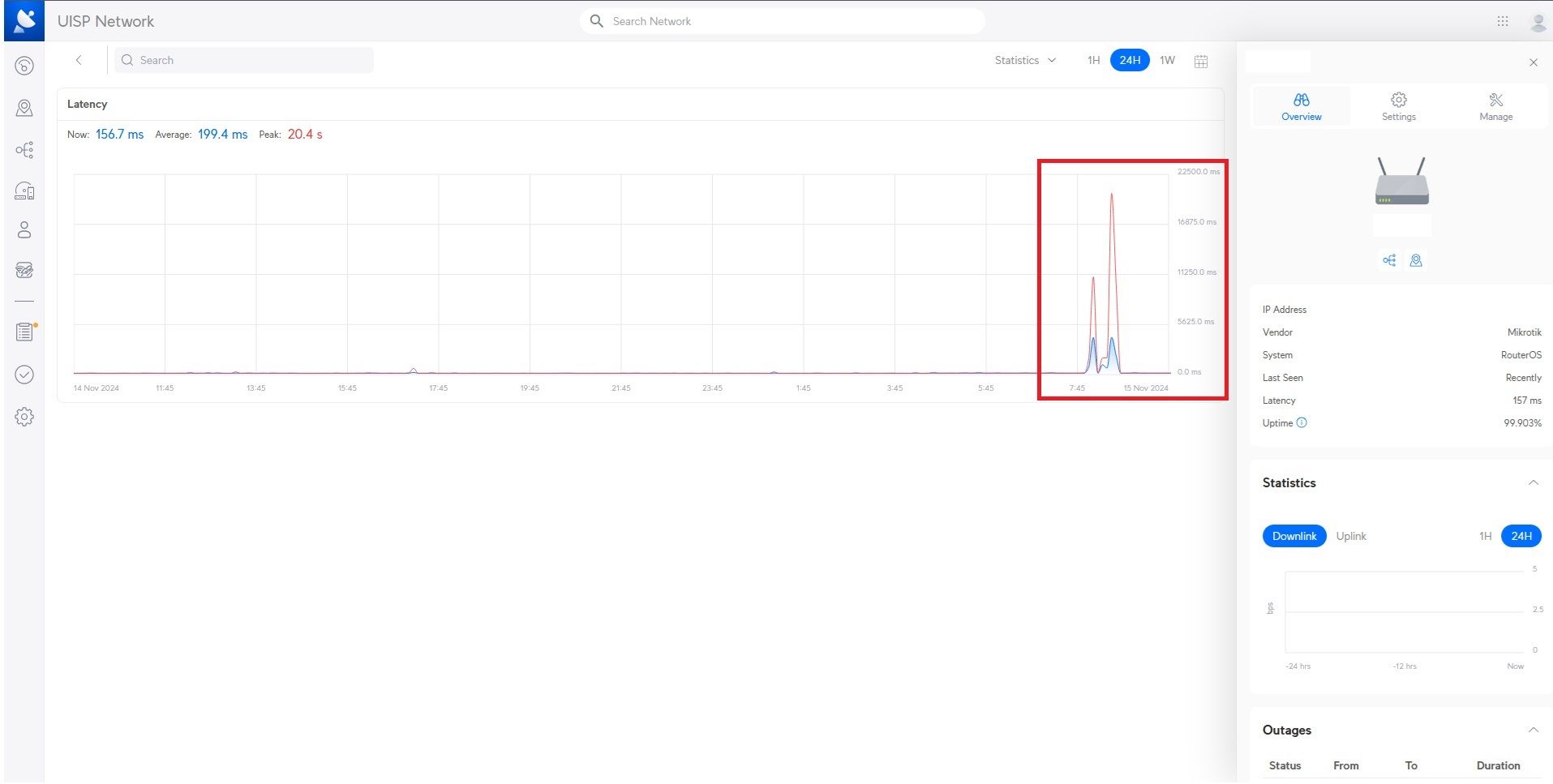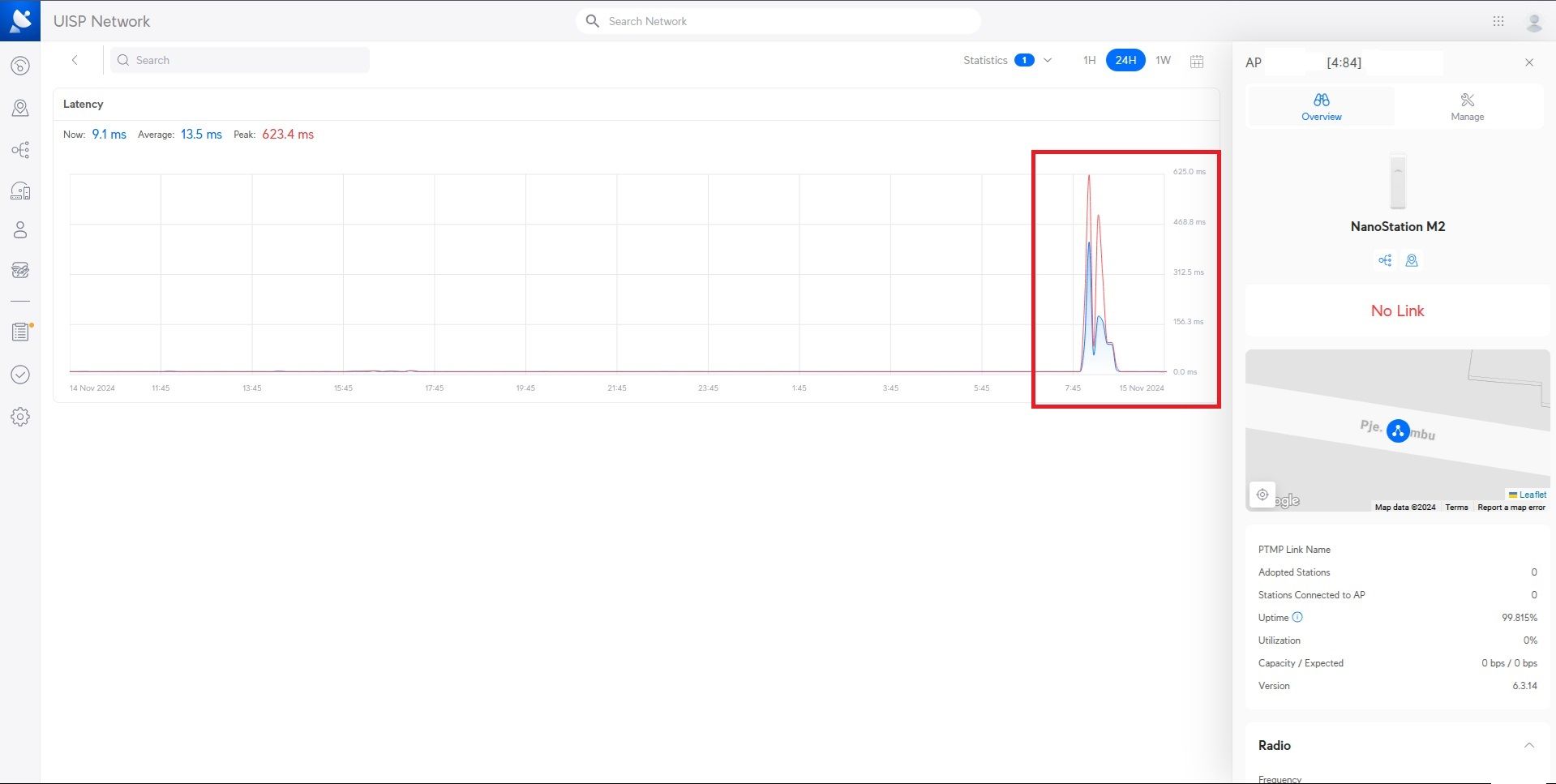Real-World Case
When managing network systems, one of the most underestimated but crucial practices is ensuring that monitoring can be performed from outside the internal network. Why? Let me illustrate with a real-world case.
Recently, everything looked fine internally: network health, latency, and connections all appeared within normal ranges. However, we started receiving calls from clients reporting service interruptions.
The Key Insight
The issue was only revealed thanks to external monitoring. Two of our devices had public IP addresses specifically for monitoring from outside the LAN. This quickly showed that the problem was not inside our infrastructure, but with the upstream provider. As a result, we were able to open a support ticket promptly and inform our clients about the source of the issue before it escalated.
Evidence Screenshots



Conclusion
While remote monitoring systems should not be the only monitoring method, they are invaluable tools for troubleshooting. They provide an external and objective view that helps detect issues internal checks might miss — saving time and improving response accuracy.
Strengthen your network strategy by integrating external monitoring. Your clients will thank you, and your troubleshooting capabilities will become far more effective.